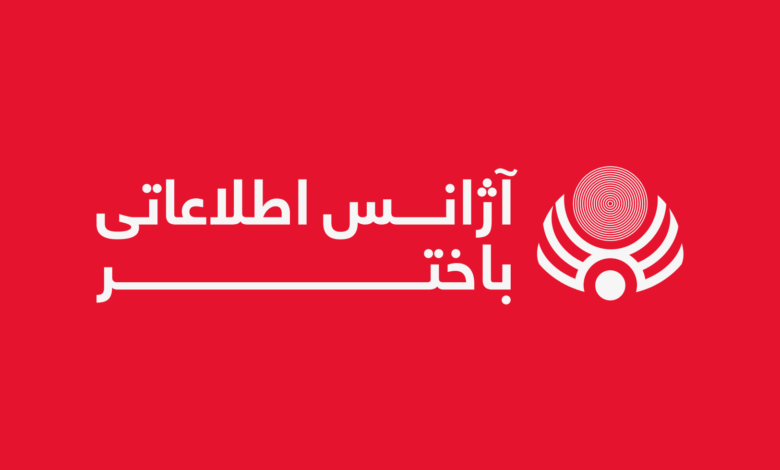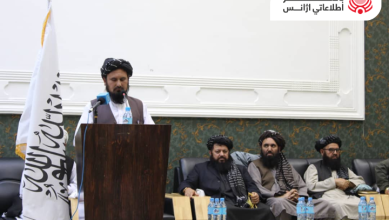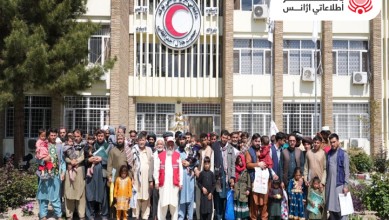
Saturday June 28, 2014
Kabul (BNA) Drug smuggling constitutes one of the major challenges in the era of 21st century.
The illicit trafficking of narcotics and poppy cultivation has become major source of incomes for drug mafia and criminal groups. Based on the UN statistics, the scale of poppy cultivation and drug smuggling have received visible growth in the world in recent years and it has caused a devastative challenge to the civilized world which needs to be curbed to save human community from drug’s psychological and mental impacts. Drug smuggling strongly threatens the new generation in the war-battered and impoverished countries like Afghanistan and the world must cooperate to rein the menace from the roots and ensure safety of the youths from the diseases.
In 1990, the United Nations (UN) a separate organization known as UN office for drugs and crimes to combat the drug smuggling and curb expansion of the menace and later on the UN nominated 26th June as International Anti-Drugs Day in order to enhance global cooperation among the world nations to jointly fight the issue. Based on reports, drug and addictions effect on millions of people worldwide and mafia groups and criminals groups gain billions of dollars financial resources through this way. Even in some countries, the terrorist organizations complete their war expenditures from drug smuggling money. Addiction, habitual repetition of excessive behavior that a person is unable or unwilling to stop, despite its harmful consequences, people can be physically addicted to a drug, meaning they may suffer its physical effects if they stop taking the drug. They also can be psychologically addicted to drugs, gambling, or other behaviors, meaning they feel overwhelmingly deprived if they attempt to stop.
Drug smuggling has become income sources for mafia groups in a number of Asian and American countries and there are the biggest producers’ cocaine, opium, heroin and crystal and these countries are included of Thailand, Burma, Laos, Colombia and Mexico.
Drug smuggling and addictions massively impact the society. It also forges major economic and financial issues to those who are suffering from addiction. Economically drug smuggling causes nearly $ 50 financial losses on the annual basis to the world countries while mafia and criminal groups gain nearly $ 90 billion incomes from drug trafficking. The individuals who are coping with addiction spend miserable life in the society. 15 percent of the addicts resort to suicide and another 75 percent confronts with various types of infection disease.
According to statistics, currently, up to 80 to 100 million children across the world under the age of 17 are living in social isolation without their families. These children are those who have lost their parents during the wars or because of diseases such as HIV, cancer and addictions and thousands other are wondering on the streets and parks. However, the government of Islamic Republic of Afghanistan and international community invested millions of dollars to eradicate poppy cultivation and drug smuggling in the country. But drug trafficking still exists in the country and the surge groups fulfill their war expenditures from the menace. Because the demands for drugs in international markets are much and global mafias try to keeps domination on smaller groups operating inside the country to persuade farmers to grow poppy in their fields.
According to survey, 97 percent of drugs produced in Afghanistan are utilized in world markets and only 3 percent is used inside the country. By resolution 42/112 of 7 December 1987, the General Assembly decided to observe 26 June as the International Day Against Drug Abuse and Illicit Trafficking as an expression of its determination to strengthen action and cooperation to achieve the goal of an international society free of drug abuse. This resolution recommended further action with regard to the report and conclusions of the 1987 International Conference on Drug Abuse and Illicit Trafficking. It is quite important to mention that countries emerging from conflict or escaping economic decline can be overwhelmed when illicit drugs pour across their borders. The United Nations, working across peacekeeping, law enforcement, health, human rights and other related areas, is strongly committed to helping victims of drug addiction, repel illicit drugs and prevent spill-over from becoming takeover.
Thousands of people in Afghanistan are now suffering from addictions and this has caused major social issue to the country. Based on the article 17 and 18 of anti-narcotics law, a special tribunal was formed to undertake legal action against those involved in drug trafficking. More than one million drug addicts exist in Afghanistan these days that are in extreme need of medical treatment and concentration. But the country lacks enough resources to make sure treats of these people and only 5 percent of the overall addicts’ have access to health centers.




